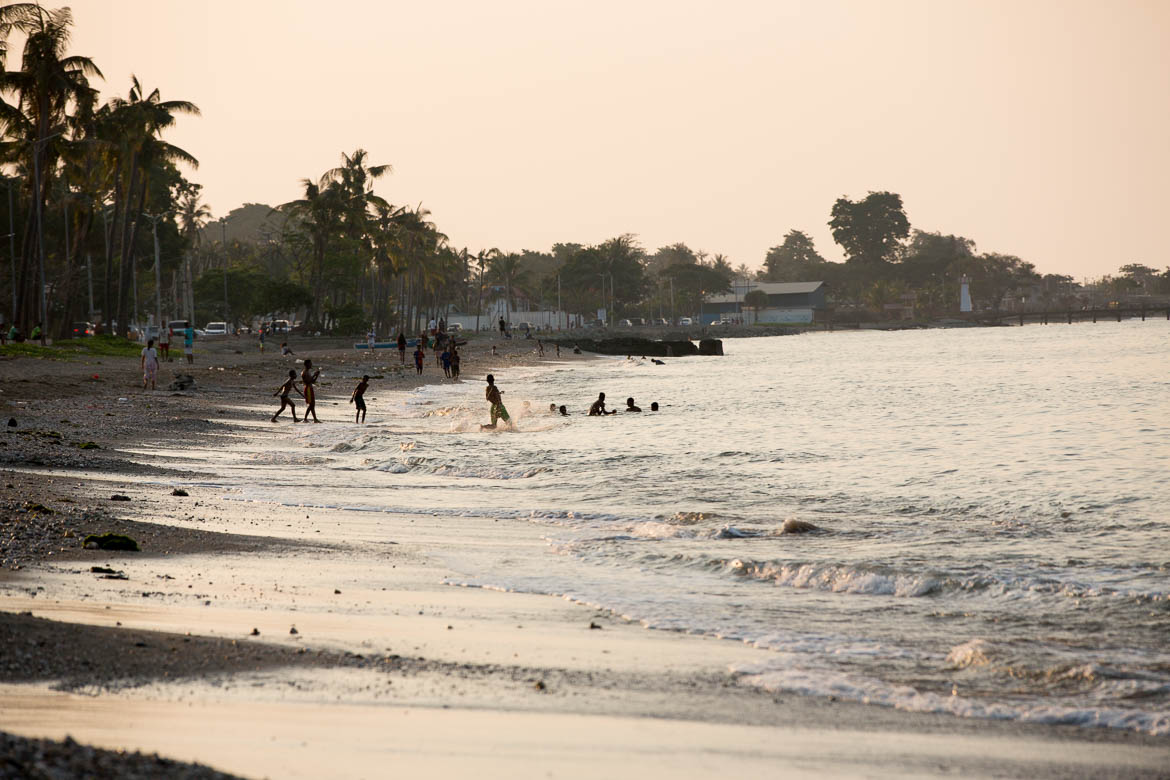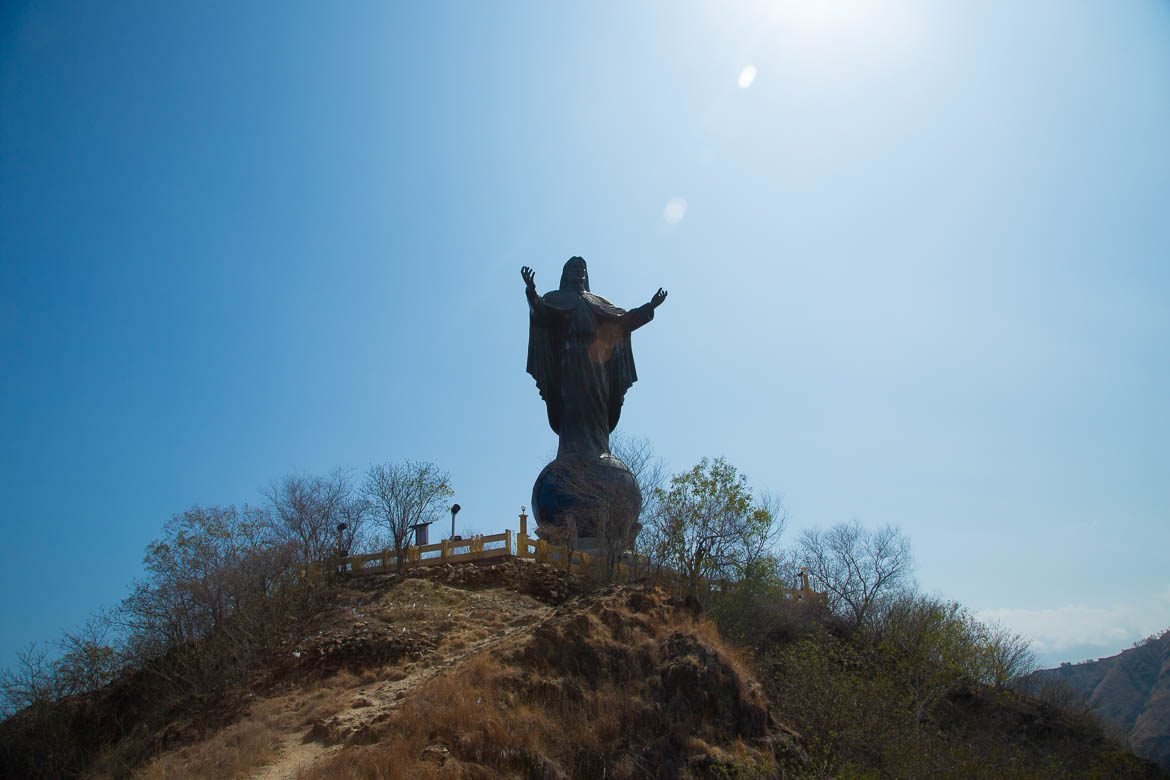We’ve been building our team at our new base in Timor-Leste in preparation for our first group of volunteers arriving. Here, Sean, one half of our new Science and Conservation Coordinator duo – shares his first impressions of Dili, Timor-Leste’s capital city. We’ll be introducing our expedition base on Atauro Island in greater detail in the weeks to come but for now Dili deserves its own moment in the BV spotlight…
Visas stamped, baggage through security and countless (respectfully declined) friendly offers of assistance and/or taxis later, we’re through the melee and shaking hands with Greg & Maria – at the time just a new colleague and his wife, but soon to become our Dili lifeline and knowledge hub.
During my first wander around my new neighbourhood, I found myself defaulting to the standard city-dweller tactics of keeping your head down and having minimal interaction with those I passed, even having to make a conscious effort to remember to smile at the guy who stands at the gate of the office compound.
Despite this, I’d heard the words “Diak ka lae?” being sent my way by a few people I passed but had no idea how to respond. Greg and Maria soon solved the mystery by informing me that it was literally translated as ‘Good or not?’ and is the standard greeting between friends, acquaintances or complete strangers. I was promptly informed that the only answer available to you is an equally friendly “Diak, ho ita?” regardless of whether you are good or not!

As the sun sets each evening along the Dili beachfront people gather to swim and fish. Photo | Martin Muir
Armed with this knowledge, my next trip to the shops had me aiming a “Diak ka lae!” at anyone who made eye contact with me. All well and good until those I greeted followed up with further questions that exhausted my then meagre knowledge of Tetum!
At first look, Timor-Leste wears its history on it’s sleeve with statues and memorials commemorating the lives lost and hardships of the still recent struggle for independence dotted around the city. After a few weeks living and breathing Dili, my impression is that whilst the nation is determined to ensure the conflict is not forgotten, Dili itself is equally determined to forge its own identity as a bustling and vibrant capital city in a country of potential and possibility.
Immediately east of the town is a headland that rolls down out of the hills behind town, cuts across the beach and out into the sea where, in a show of exceptionally good grace, it drops off into the water providing (apparently) excellent diving and snorkelling (allegedly) accessible directly from shore. Viewed side on, the profile resembles that of a half-submerged crocodiles head, though instead of hosting a small bird on its snout, this crocodile hosts Christo Rei – Rio’s Christ the Redeemer in miniature.

Christo Rei of Dili is a 27m tall statue of Jesus stood upon the globe offering incredible views across the Wetar Strait to Atauro Island. Photo | Martin Muir
Cristo Rei of Dili was a gift from the Indonesian government in 1996 to commemorate 20 years of Timor-Leste’s integration into wider Indonesia. It was initially viewed as a particularly extravagant piece of propaganda by an Indonesian regime that were almost certain to never countenance the prospect of an independent Timor-Leste. However 20 years later it is an attraction to Timorese and mallae (friendly, colloquial term for any foreigner) alike.
Over the past few weeks my Tetum has thankfully gotten better and my conversation has diversified a little but the friendly attitude of the Timorese and their greeting remains. So, Diak ka lae?
Diak, definitely Diak.
Blue Ventures would like to thank our supporters and funders including the GEF through UNEP under the Dugong and Seagrass Project and Wilstar.

